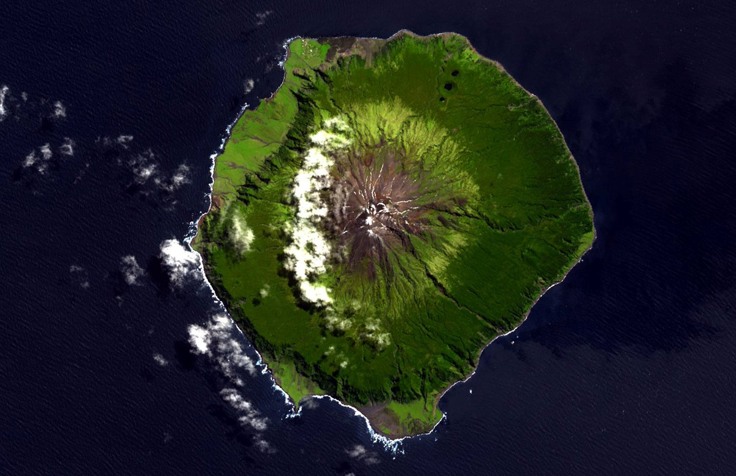Fancy moving to one of the world’s remotest islands? Populations are under 6,000, shops are few and far between and you may be hundreds of miles from the nearest hospital – but this is the reality for people on these 3 overseas British territories.
Tristan da Cunha
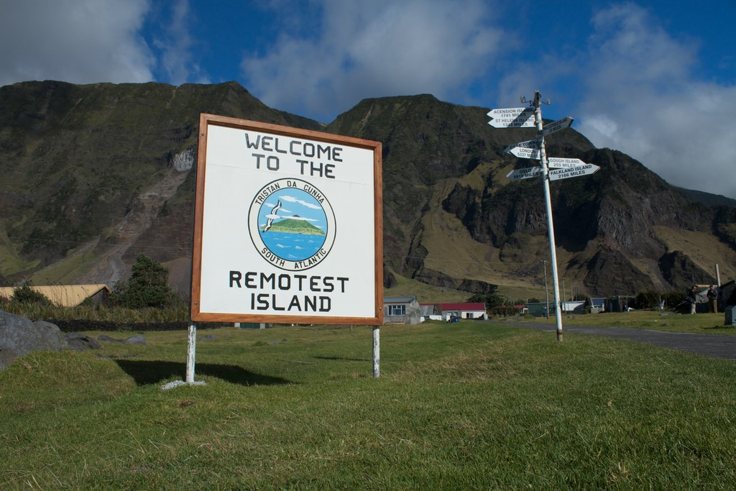
Photo credit: Brian Gatwick/ Flickr
The tiny volcanic island is in the middle of the South Atlantic Ocean. The nearest inhabited land is St Helens (1,200 miles) and the nearest continental land is South Africa (1,500 m). British marines first settled there back in 1810, and the population can be traced back to just 5 female founders of mixed origins.
The only way to travel there is by boat, and the journey isn’t easy; it’s rough and can take 3 weeks. Arrivals are few and far between to this island, yet when they are made, they are greeted by a population of just 262 (2017).
The island has a rugged terrain, and large green pastures where sheep graze. The tiny island is susceptible to rough weathers; volcanic eruptions and tornadoes, which have affected the island in the past, and even caused temporary evacuation to the UK.
Every family on the island owns several fields to grow crops, which can be located by catching the irregular island bus down the island’s only road. But here, all inhabitants on the island are farmers. Everyone owns livestock, yet numbers are controlled to prevent limited pastures from being overgrazed. No outsiders are permitted to buy land on the island.
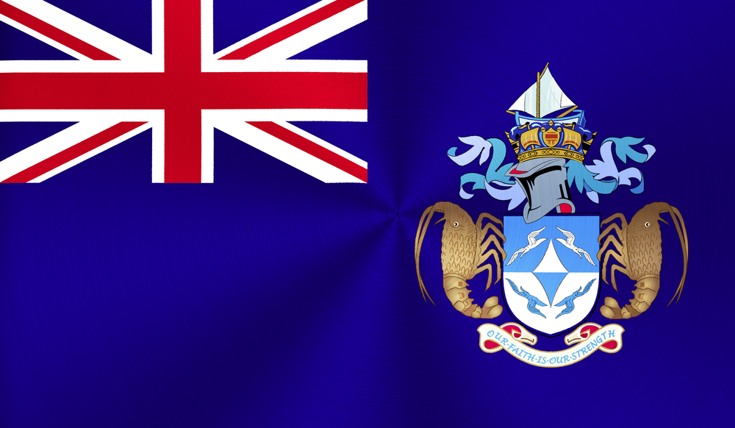 Photo credit: Peace PhotoHunter/Shutterstock
Photo credit: Peace PhotoHunter/Shutterstock
There is one school which children on the island attend until the age of 16. There is a solitary pub, demonstrating the islands British culture, along with the few red telephone boxes, as of course there is no mobile reception on the island.
“It feels almost like a beautiful old fishing and farming village. It seems it could almost be a piece of England thrown into the middle of the South Atlantic.”
Most adults on the island work salaried jobs in governmental or domestic services. The island makes some revenue from fishing of crayfish and a tiny amount is generated through tourism and the sale of postage stamps and coins.
A native of the island comments “I like the calm, piece and quietness of the island; it’s so quiet you can hear the grass grow! It’s safe, we don’t lock our doors and leave our windows open.”
Interesting fact: The entire population was evacuated to England in 1961 due to the volcano erupting, where they remained for 2 years. It was the first time many Tristan residents had left the island, and many struggled with the experience.
Pitcairn
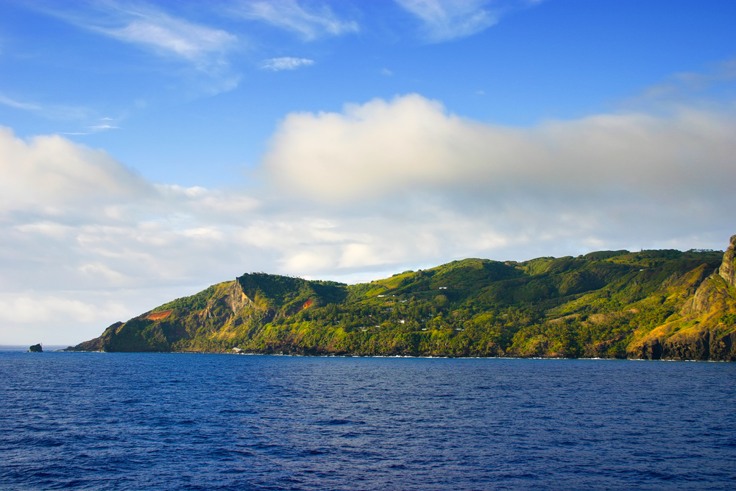
Photo credit: Claude Huot/Shutterstock
If you thought Tristan was remote, Pitcairn is a tiny (3.6km east to west) volcanic island in the Southern Pacific, 3,429 miles from the nearest land mass, New Zealand. The island population of just 49 descend from 9 British Bounty Mutineers (those who were aboard the HMS Bounty), along with a few women from Tahiti and some Polynesian men.
Back in 1937 it had a population of 233, yet it has dropped as so many are emigrating to New Zealand. With only 3 births in the past 20 years, the island is at high risk of becoming extinct, with attempts to attract migrants failing. The island today has the smallest democracy in the world.
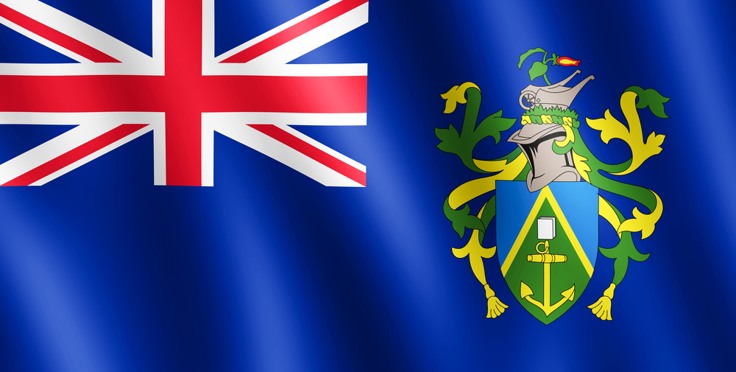 Photo credit: Ongala/Shutterstock
Photo credit: Ongala/Shutterstock
Unlike Tristan, the island has a tropical climate and grows much fruit, which it exports to New Zealand. The island makes some money from tourism, fish and fruit exports and the selling of postage stamps and coins.
The island is a UNESCO World Heritage site. It has a rich variety of animals and plants – 9 of which can only be found on the island.
Despite the beauty of the island, it has a darker side, as there was a major sexual abuse scandal in 2004 where a third of the males of the island were found to be involved, and 6 faced sentences. This news caused a drop in tourism, and a dwindle in interest in settling on the island.
The islanders speak English, but have their own unique language of Pitkern, a creole language which derives from 18th century English and Tahitian. Like the islands dropping population, this language is at risk of becoming extinct.
It is likely that the time will soon come that the British government needs to make a decision on the future of the island.
Interesting fact: Pitcairn legalised votes for women in 1838, as opposed to mainland UK where it was 1918.
St. Helena
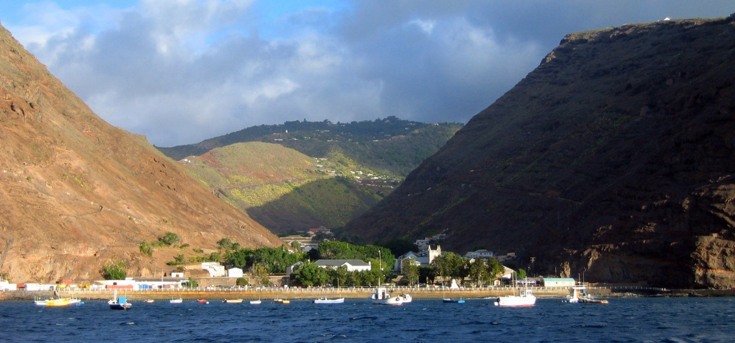
Photo credit: Mejuto/ Wikimedia Commons
St Helena falls in the same group of islands as Tristan and is most famous for being where Napoleon Bonnaparte was exiled and imprisoned by the Brits, although it was first discovered by the Portuguese in 1502. The island is 1,200 miles from the nearest port on continent, which is located in Namibe in Africa. The island measures 10 by 5 miles and is the 2nd oldest remaining overseas British territory, after Bermuda.
Like Tristan, it has rugged volcanic terrain. It has been a location of conservation experiments in reforestation and boosting rainfall artificially. It is pending for UNESCO world heritage membership.
The population of St Helena declined between 1998 and 2008, yet has increased slightly from 2008 to 2016. However, 1/5 of young people leave to Britain or South Africa to find work. The economy of St Helena is weak, and receives much aid from Britain – $40 million each year. The island generates revenue through exporting fish, coffee, tourism and a few small businesses.
“The plan is to go to the Falkland’s. I need to change our way of living, try and make things better for ourselves. It ain’t gonna be easy leaving”.
Most islanders work in the public sector, although wages are low and cost of living increases. The island does also have a small hospital, however, it is lacking in resourced.
However, the British government announced in 2011 that an airport was to be built, which was due to finish in 2016, delays pushed the opening back but hoping 2017 – 5 hours to cape town rather than 5 days. This decision has divided opinions on the island. Flights will be from London Luton airport, and there will be weekly flights to SA.
Interesting fact: St Helena produces the most expensive coffee in the world, which has been sold to Starbucks.
There you have it, 3 overseas British territories so remote it’s hard to imagine what life is truly like on these islands, and how long life will persist there. Britain has another 11 territories around the world, and the majority of these are permanently inhabited, and the rest inhabited by military personnel and/or ecological researchers. These territories harken back to a time when Britain ruled ¼ of the world and the phrase “the sun never sets on the British empire” rang true. However, as things change and globalisation continues to occur, it is unclear how long inhabitants will remain on these remote islands and avoid the pull of wider opportunities abroad.
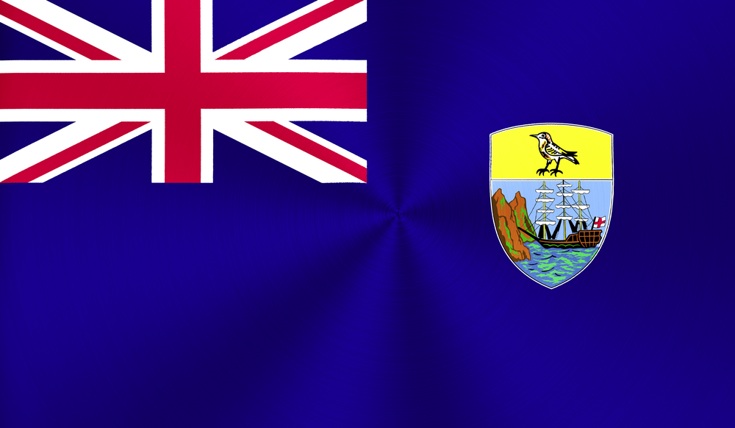
Photo credit: Peace PhotoHunter/Shutterstock
Feature image credit: NASA ASTER volcano archive jpl /Wikimedia Commons




